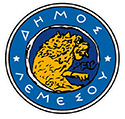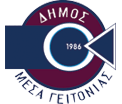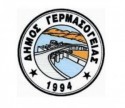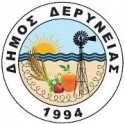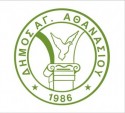Today, the European Commission published its latest report on the Commission’s system to prevent or restrict the selling of dangerous products on the market, the so-called ‘Rapid Alert System‘. The report shows that the number of actions taken by authorities following an alert is growing year on year, reaching 4,477 in 2019 compared to 4050 in 2018.
Didier Reynders, Commissioner for Justice, said: “The Rapid Alert System is available 24 hours, 7 days a week, keeping information flowing and our single market safe. As we have seen from the 2019 report, a record level of work is being carried out to protect consumers from dangerous products and potential harm. Moreover, the Commission has been working with Member States to increase testing of products. This work led to an additional 75 products being flagged through our Rapid Alert System since the end of last year.
Main findings of the report
In 2019, authorities from 31 participating countries of the Rapid Alert System (EU Member States plus the UK, Norway, Iceland and Liechtenstein) exchanged 2,243 alerts on dangerous products through the system, which prompted 4,477 follow-up actions. This represents an increase of 10% from last year and of 63% since 2015. Actions taken range from the withdrawal or destruction of a product by distributors and retailers before they reach consumers, to recalling unsafe products from users.
According to today’s report, toys were the most notified product category (29% of total notifications), followed by motor vehicles (23%), and electrical appliances and equipment (8%). Cosmetics, clothing, textiles and fashion items, as well as childcare articles and children’s equipment also had a high number of alerts.
The most notified risks related to a product causing injuries (27%) such as fractures or concussions. Chemical components in products was the second most frequently flagged concern (23%), followed by risks of choking for children (13%).
While not covered by the 2019 report, a number of new alerts have been registered since the start of the coronavirus outbreak. Up until 1 July, there were 63 alerts on face masks, 3 alerts on coveralls, 3 alerts on hand disinfectants and 3 alerts on UV lamps (“sanitising wands”). Between 1 March and 1 July, 10 follow-up actions were taken on face-masks, and one on a hand disinfectant, leading to the further harmonisation of measures against such products and thereby improving the protection of consumers across Europe.
Coordinated testing of products
The Commission also published today the results of the Coordinated Activities on the Safety of Products (CASP). This work – which involved the joint testing of products by the European Commission and European authorities selected by the Member States– led to 652 products being tested for safety. Products selected for testing by Member States included personal transport devices, soft-filled toys, chargers, batteries, bicycle seats for children and slime toys. 38% of all products tested were non-compliant with specific aspects of EU safety legislation. 11% of products – 75 products – were found to pose serious risks for consumers. For example, while all the bicycle seats tested presented some type of risk, only 8% were serious. By category, soft-filled toys presented the highest rates of serious risks, 68%, while batteries showed the least serious risks (1%) In carrying out this work, if a risk is found to be serious, the product is notified in the Rapid Alert System in order to prevent the spread of dangerous products on the market.
Next steps
The Commission will continue modernising the Rapid Alert System tools to encourage consumers to consult the database of alerts and make safe purchasing decisions. This includes updating the website for consumers and businesses, as well as the specific tool used by Member States to notify alerts.
The Coordinated Activities on the Safety of Products are organised every year. This year’s activities – CASP2020 – started at the beginning of the year. They include testing products (such as toys, jewellery, home play outdoor equipment, cables, small kitchen heating appliances, baby nests and children’s car seats), risk assessment, online market surveillance, cooperation with customs, injury and accident data collection and communication campaigns. In the coronavirus context, the Commission is also launching a specific call for products related to the virus. The joint work – which will be similar to the work carried out for non-coronavirus-related products, will cover half-face masks, hand disinfectants and gloves, and is expected to start before mid-July 2020. The priorities for CASP2021 are currently being established.
Background
Since 2003, the Rapid Alert System ensures that information about dangerous non-food products withdrawn from the market and/or recalled anywhere in Europe is quickly circulated between Member States and the European Commission. This way, appropriate follow-up action can be taken everywhere in the EU.
The Rapid Alert System has a dedicated public website ‘the Safety Gate’ which provides access to weekly updates of alerts submitted by the national authorities participating in the system. Thanks to the modernisation of the system, specific alerts can be prioritised and processed immediately at arrival, such as alerts on unsafe facemasks in April 2020.
Businesses also can use the Business Gateway to quickly and efficiently warn national authorities about a product that they have put on the market that might be unsafe.
Another action on consumer protection is the Product Safety Pledge, which sets out specific voluntary actions that go beyond what is already established in the EU legislation. Seven online marketplaces have already signed this agreement to cooperate with Member States to remove dangerous products from their websites. The company Wish.com has recently joined the initiative.
For More Information
Annual report and factsheet with national statistics on Safety Gate
Rapid Alert System alerts listings
Search tool for the Rapid Alert System published information
Rapid Alert System national contact points
Business Gateway national contact points
Press contact
· Christian WIGAND
Phone
+32 2 296 22 53
· Kasia KOLANKO
Phone
+ 32 2 296 34 44
katarzyna.kolanko@ec.europa.eu
· Alice HOBBS
Phone
+32

